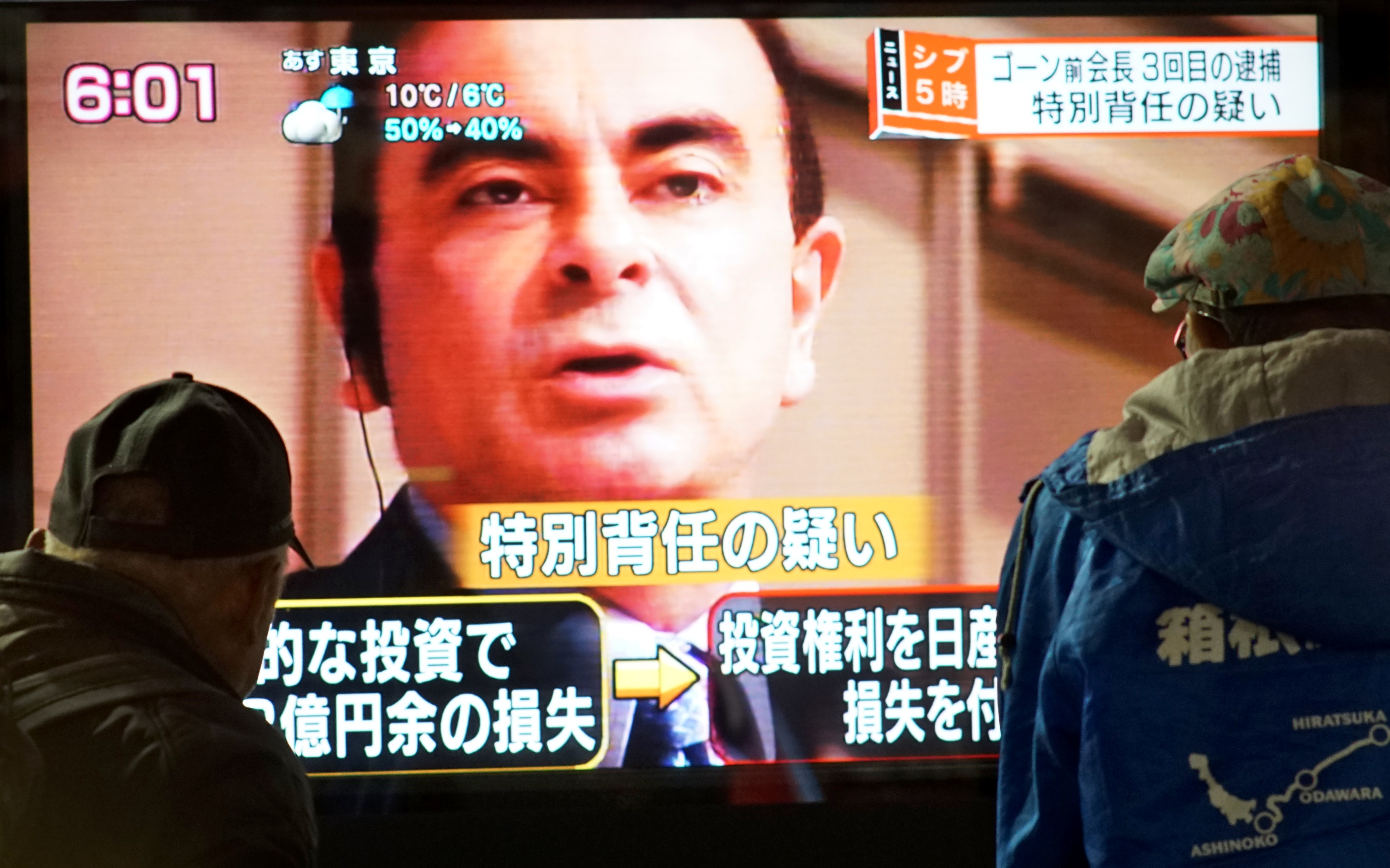Ghosn to appear in court: what happens next?
Carlos Ghosn will finally get his day in court (Kazuhiro NOGI)
Tokyo (AFP) – The case of auto tycoon Carlos Ghosn has gripped Japan and the business world since his stunning arrest in November, and now he is finally getting his day in court.
Ghosn will be able to make his first public statement at a brief hearing on Tuesday, after his lawyers used an obscure article of Japan’s constitution to demand an explanation for his detention.
– What will happen in court? –
The hearing is “a dialogue between the lawyer and the judge, and the prosecutor is not required to be present,” said Yasuyuki Takai, a former investigator at the unit that arrested Ghosn.
The judge is likely to give a brief explanation for Ghosn’s detention, and the Constitution mandates that the accused be permitted to speak as well.
However there is no allotted time for his comments, and the judge could require Ghosn to read a prepared statement rather than give off-the-cuff remarks.
In theory he is free to say what he wants until the judge tells him to stop, said Takai. “He can wear what he wants, but he’ll be handcuffed until the entrance of the courtroom,” he added.
He will not, however, be permitted to speak to reporters, the general public or family members in court.
“This hearing will have no bearing on the rest of the case,” Takai said. “There’s no chance that Ghosn’s release will be ordered tomorrow.”
– What is Ghosn accused of? –
Prosecutors are investigating three separate lines of enquiry:
— He is accused of under-reporting his salary by around five billion yen ($44 million) between 2010 and 2015 in official documents sent to shareholders.
— He is accused also of under-reporting his salary by a further four billion yen between 2015 and 2018.
— He is further accused of trying to transfer 1.85 billion yen in personal investment losses during the financial crisis to Nissan. He is also accused of wiring company funds to a Saudi associate who put up collateral for him in the investment scheme.
Authorities have so far only pressed formal charges over the first accusation.
Ghosn reportedly denies all the allegations.
– Why is he still in prison? –
Under Japanese law, a suspect can be held for weeks, or even months, as prosecutors probe different allegations.
After the initial arrest they have 48 hours to question the suspect. They can then apply for two consecutive 10-day extensions.
After a maximum of 22 days they must either press formal charges, release the suspect on bail or come up with new allegations.
Ghosn was initially held until December 10 as prosecutors investigated the first allegation against him. They then formally charged him, kicking off a two-month period of pre-trial detention that is renewable.
But prosecutors also simultaneously re-arrested him on the second set of allegations, restarting the 22-day clock.
A court rejected a further extension of that set — raising the possibility of Ghosn’s release on bail — but in another twist, prosecutors slapped the tycoon with a third set of allegations, restarting the whole process.
The case has sparked criticism of the Japanese legal system, especially from overseas.
– What happens next? –
The detention period for the third allegation against Ghosn expires on January 11, by which time prosecutors must decide whether to charge him, re-arrest him on new allegations or allow him to apply for bail.
Even if prosecutors do not level new allegations, the former Nissan chief could remain in jail in pre-trial detention.
If prosecutors charge him with either of the outstanding allegations that would also restart the pre-trial detention clock.
If no new allegations are levelled against Ghosn he could apply for bail. His alleged accomplice and former right-hand man at Nissan, Greg Kelly, successfully won bail on December 25 on the condition he stays in Japan.
Disclaimer: This story is published from a syndicated feed. Siliconeer does not assume any liability for the above story. Validity of the above story is for 7 Days from original date of publishing. Content copyright AFP.


